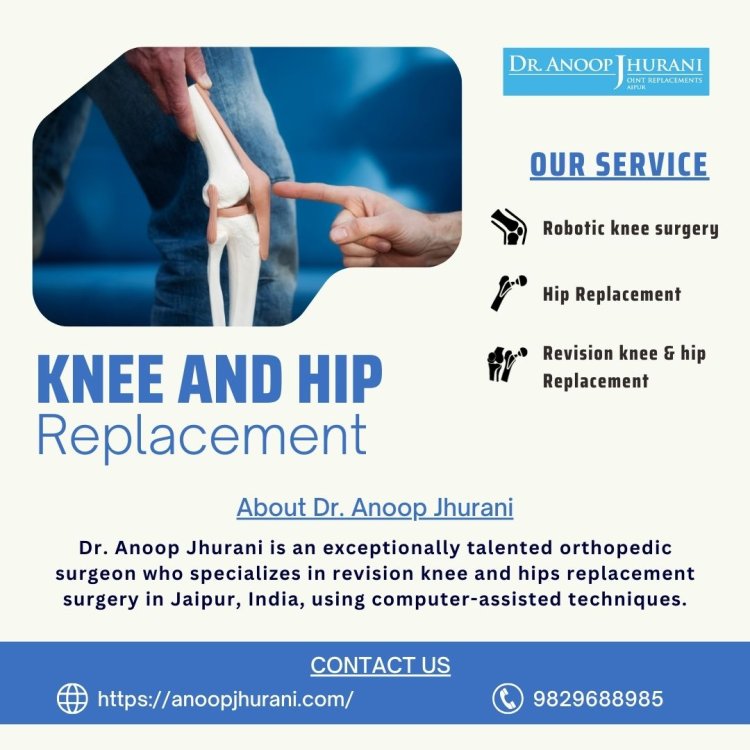Indications for Hip and Knee Replacement Surgery
Dr. Anoop Jhurani is one of the knee & hip replacement doctors in Jaipur. He has performed over 12,000 successful knee and hip surgeries.
Share this Post to earn Money ( Upto ₹100 per 1000 Views )

As advancements in orthopedic surgery continue to evolve, patients have access to innovative solutions for joint-related issues. Two commonly performed procedures, hip and knee replacement surgery, address debilitating conditions that affect mobility and quality of life. Understanding the signs that indicate the need for these surgeries is crucial for timely intervention and improved outcomes.
Signs You Need Hip Arthroplasty:
1. Difficulty with Stairs: If climbing or descending stairs becomes increasingly challenging due to hip pain, it may indicate the need for hip arthroplasty. Stair-related discomfort suggests significant joint degeneration that affects mobility.
2. Difficulty Rising from Seated Position: Struggling to stand up from a seated position due to hip pain signifies advanced hip joint deterioration. This limitation in movement can severely impact daily activities and independence.
3. Persistent Pain Despite Medication: Chronic hip pain that persists despite conservative treatments such as pain medication indicates progressive joint damage that may require surgical intervention to alleviate symptoms effectively.
4. Worsening Pain with Activity: Hip pain that intensifies with physical activity, including walking, even when using assistive devices like canes or walkers, suggests severe joint degeneration that compromises mobility and quality of life.
5. Difficulty with Daily Tasks: Difficulty performing routine tasks such as getting dressed due to hip pain indicates significant functional impairment, affecting the individual's ability to maintain independence and quality of life.
Indications for Robotic Knee Replacement Surgery:
1. Persistent Knee Pain: Chronic knee pain that persists during rest or exacerbates with daily activities like walking, running, or resting may indicate the need for robotic knee replacement surgery to address underlying joint pathology effectively.
2. Functional Limitations: Knee pain that restricts routine activities such as walking, running, or engaging in recreational pursuits signifies significant joint degeneration, warranting surgical intervention to restore function and mobility.
3. Swelling and Stiffness: Persistent knee swelling and stiffness, even after conservative treatments like medication and physical therapy, suggest advanced joint degeneration that may require surgical correction through robotic knee replacement.
4. Deformity: Structural abnormalities or deformities in the knee joint, such as malalignment or instability, may necessitate robotic knee replacement surgery to correct underlying anatomical issues and restore joint function.
Conclusion:
Recognizing the signs that indicate the need for hip arthroplasty and robotic knee replacement surgery is essential for timely intervention and optimal outcomes. By addressing debilitating joint conditions effectively, these advanced surgical techniques offer patients renewed mobility, improved function, and enhanced quality of life. Dr. Anoop Jhurani, a leading orthopedic surgeon specializing in hip and knee replacements, provides comprehensive care and advanced surgical solutions to patients in need. With a focus on precision and patient-centered care, Dr. Jhurani ensures superior outcomes and enhanced recovery for individuals seeking relief from joint-related ailments.
















![Hot# Call Girls In Goa Calangute ✤✤[[ 9289866737 ]] ✤✤ Goa Russian Escorts](https://blog.rackons.in/uploads/images/202409/image_380x226_66f2f360a62da.jpg)
